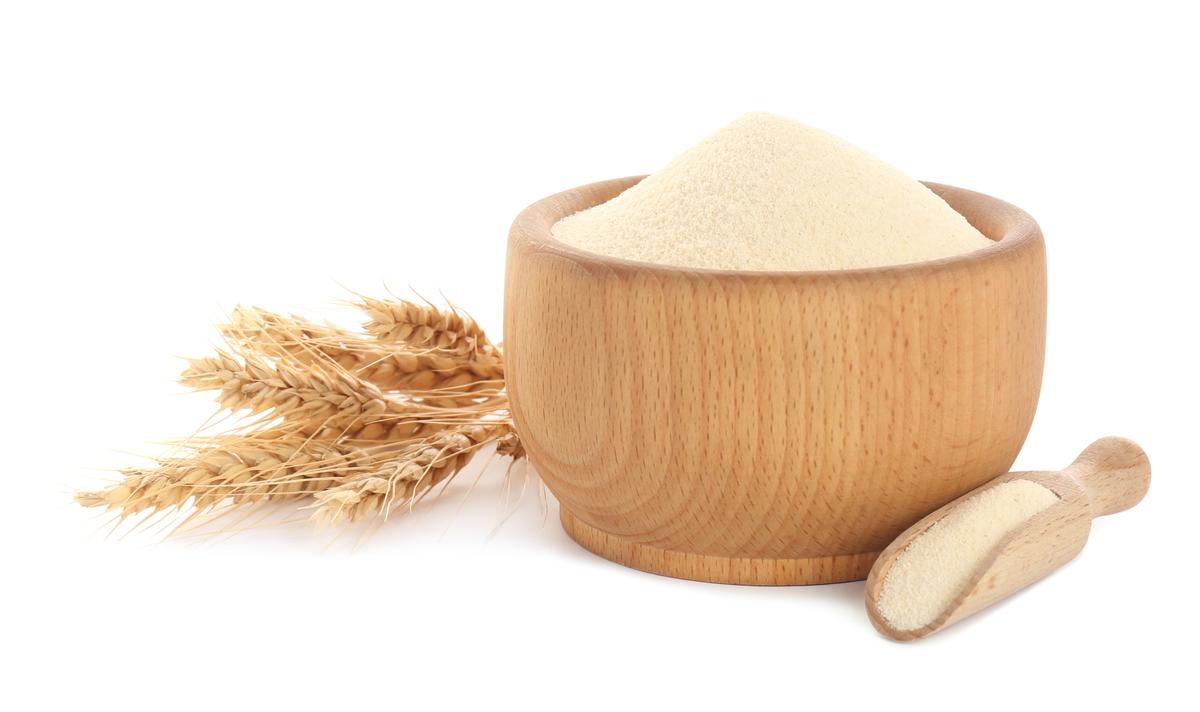- +966506250065
- info@alyami.co
Semolina is derived from the Italian word semolino,[2] 1790–1800; alteration of Italian semolino, equivalent to semol(a) “bran” (Latin: simila, lit. ’flour’) + -ino diminutive suffix. In the Lithuanian language sumalta means something that is milled, miltai means “flour” and malti means “to mill”, while semolina in Lithuanian language is manai.[citation needed] The words simila, semidalis, groat, and grain may all have similar proto-Indo-European origins as two Sanskrit terms for wheat, samita and godhuma, or may be loan words from the Semitic root smd “to grind into groats” (cf. Arabic: سميد samīd).[3]
